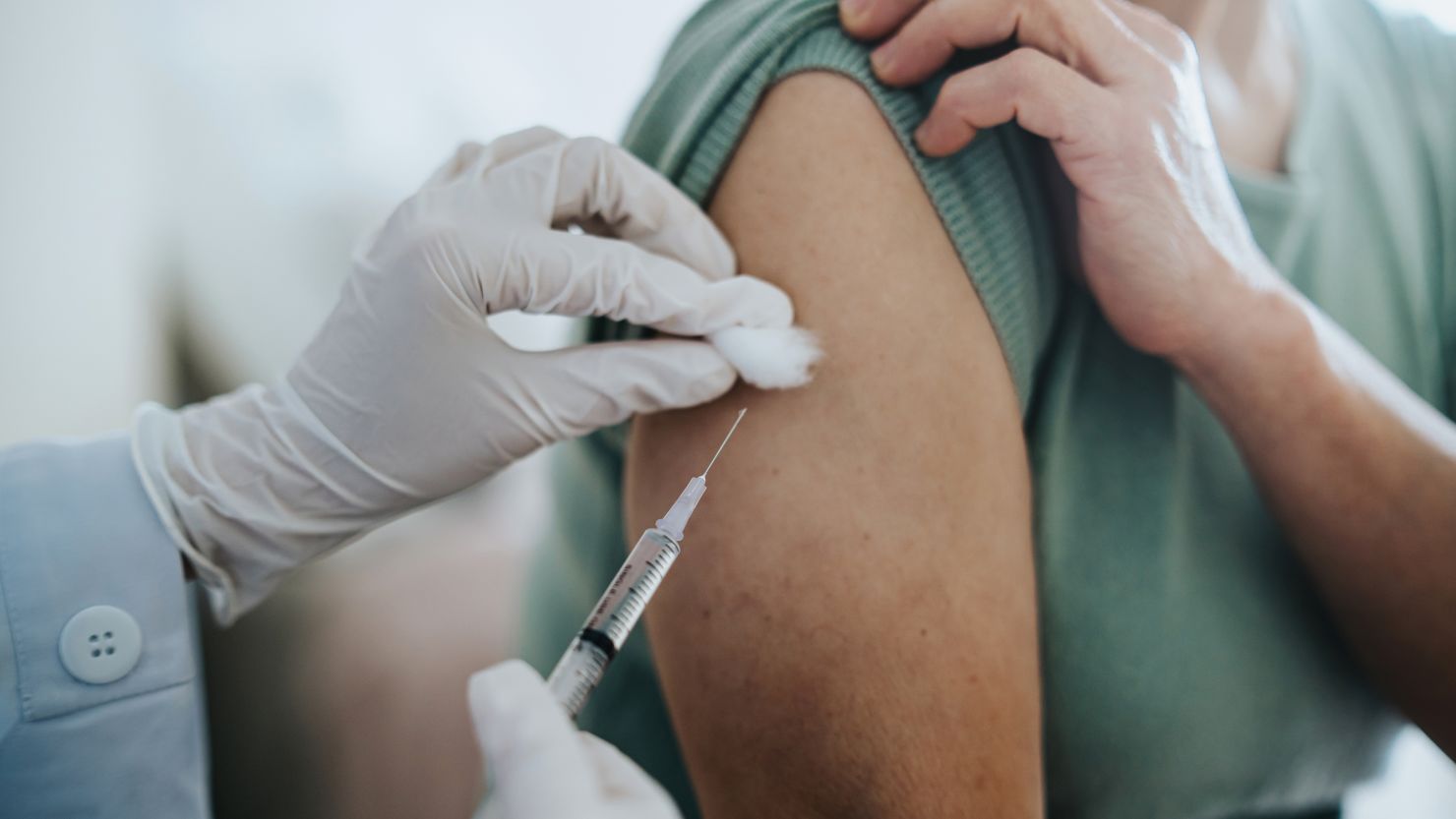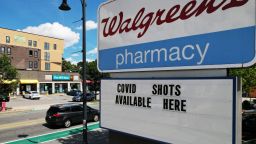When it comes to the updated Covid-19 vaccines, only about 1 in 4 American adults says they definitely plan to get the shot, according to a new survey from the nonprofit health policy group KFF.?Roughly another quarter of adults say they will probably get the shot.
On the other side of the coin, 33% of adults say they definitely do not plan to get the new vaccines, and another 19% say they probably won’t.
Taken together, the survey finds, slightly more Americans say they don’t intend to get the new vaccines than those who do.
The findings, published Wednesday, come from the latest installment of the Covid-19 Vaccine Monitoring poll, which was designed and analyzed by public opinion researchers at KFF. The survey was conducted from September 6 to 13 among a nationally representative sample of 1,296 adults. It offers one of the first looks at what uptake of the new Covid-19 shots might look like in the US.
“I think this indicates that we have our work cut out for us,” said Dr. William Schaffner, an infectious disease expert at Vanderbilt University who wasn’t involved with the survey.
Schaffner said he sees hope in the middle, the groups who haven’t committed one way or another. “There is a little glimpse of optimism in the sense that we have about 40% of the population that can be persuaded, convinced, reassured, comforted to receive this vaccine,” he said.
But, he said, they’re also the most vulnerable to hurdles and inconveniences like the insurance and supply problems that have hamstrung the vaccine’s rollout in its early days.
Schaffner said these in-betweeners were going to get vaccinated only “If we make it quick and easy and don’t put any barriers out there, and we go out there and reach these people and motivate them.”
Those negative attitudes extend to new shots for children, too. Only about 40% of parents in the survey say they intend to get the new Covid-19 vaccines for their kids and teens.
The vaccines have been updated to help the body fight off the latest variants of the virus that causes Covid-19. Their arrival comes amid an uptick in infections, hospitalizations and deaths.
They have also arrived in the midst of widespread Covid-19 fatigue. Only about 17% of Americans got their bivalent booster, the first update to the shot that was authorized last fall, according to the last update of US Centers for Disease Control and Prevention data in May.
The new KFF survey found that the share of the public who intends to get the new Covid-19 vaccine is higher than the share who have received previous booster shots but not as high as initial vaccine uptake in 2020.
Reflecting patterns from earlier vaccine rollouts, the groups most likely to say they were definitely or probably going to get the new shots were those 65 and older (64%) and Democrats (70%).
Most people who’ve gotten Covid-19 vaccines before said they would get the new shot too, but almost 4 in 10 (37%) people who previously received a Covid-19 vaccine say that they probably or definitely won’t get the new version.
Get CNN Health's weekly newsletter
- Sign up here to get The Results Are In with Dr. Sanjay Gupta every Tuesday from the CNN Health team.
Dr. Peter Hotez, a vaccine expert at Baylor College of Medicine and Texas Children’s Hospital, said many people aren’t getting the new vaccines because they don’t know that they need them.
“In addition to the usual vaccine hesitancy, there are two new problems,” he said. First, people don’t understand “why this booster is different from the last and why you need it – because it’s specifically targeting these new variants.”
Second, people haven’t gotten the message that “even if you’ve been immunized before, that if you haven’t been boosted in a while, you’re still at risk of hospitalization,” Hotez said.
The rocky first few weeks of fall vaccination campaign haven’t helped, either.
“It’s really clear from all the anecdotes that I keep hearing that the very earliest days of trying to make these vaccines accessible has not been smooth,” Shaffner said.?He added that he hoped these issues would soon be fixed.
“But by then, I hope we have not alienated and annoyed a substantial number of the most committed people,” he said.


